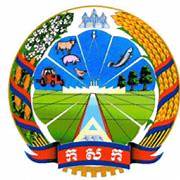Issue Description
The Royal Government of Cambodia adopted the Law on Animal Health and Production in 2016 to ensure the effective management and development of livestock farming by modernising and standardising practices with international regulations to prevent the spread of communicable diseases. Similarly, the Law sought to align Cambodia’s livestock standards with its regional neighbours to facilitate the growth of cross-border trade in animal products and further regional integration.
On January 16, 2018, the Ministry of Agriculture, Fisheries, and Forestry (MAFF) of the Kingdom of Cambodia promulgated Prakas No.51 PRK.MAFF on Procedures and Standard Requirements for Registration of Animal Feeds, Feed Ingredients, and Additives that are traded and used for feed manufacturing in Cambodia. This was to ensure the effective management and development of livestock farming by modernising and standardising practices with international regulations.
While this demonstrates the notable progress undertaken by the Royal Government of Cambodia to increase the health and safety of animal production in Cambodia, we believe that some improvements could be made to make the Law more effective.
Under Annex 7, Prohibited Feed Additives, there is only a limited list of forbidden substances. Additionally, under Prohibited Hormones, no specific hormones are mentioned.
Furthermore, under Annex 5, Standard of Compound Feed for Pig, Chicken, Duck, and Cattle, the minimum level of nutrients for each specific feed has been described. While acknowledging that this is a good way to ensure a minimum quality of feed, we believe that this regulation is increasing the production cost of livestock farmers. Animal nutrition is a science that is continuously developing, and some minimum requirements mentioned in the Annex, such as crude protein for some specific species and feed types, are on a very high level. Due to continuous improvement in genetics, raw material digestibility, availability of synthetic amino acids, the required crude protein levels for optimal cost-effective production are lower than mentioned in the Annex.
Impact on business
High feed costs can have significant detrimental effects on Cambodia’s agricultural and livestock sector.
Firstly, it can increase the production cost of livestock farmers, which can lead to lower profitability and reduced competitiveness in the market. This can discourage investment in the sector and limit its growth potential, which can have a negative impact on the overall economy.
Secondly, high feed costs can result in lower food security and increased food prices, which can have a negative impact on the welfare of the population, particularly those who rely on agriculture and livestock for their livelihoods. Moreover, it can lead to increased poverty and malnutrition, particularly among vulnerable groups such as smallholder farmers and rural communities.
In addition to economic and social impacts, high feed costs can also have environmental impacts, such as increased deforestation and land-use change to expand production areas.
Recommendation
- Reform the list of banned substances in animal production.
We respectfully recommend that the MAFF consider revising its list of banned substances for animal production. More specifically:
On Annex 7, our advice would be to follow the WHO recommendations, which recommends forbidding Human Critical Antibiotics for animal use (administration through feed, water, and directly). These are Quinolones, Cephalosporins, Macrolides & ketolides, Glycopeptides & Polymyxins. The next step should be to shape regulation, which allows the use of Antibiotics only for curative use, not for preventive usage. Doing so, will give Cambodia the advantage of accessing more premium export markets for animal proteins such as meat, eggs, fish and milk.
Under Prohibited Hormones, we would advise banning the administration of hormones (through feed, water and directly) for human health reasons as well as to give access to a larger number of export markets.
Under Annex 5, we would recommend the MAFF to consult with NGOs and the private sector from the industry, to arrange for the optimisation of substance levels to strike a balance between quality and production cost optimisation.
Royal government of Cambodia
Initiative from Eurocham: The issue has been raised by Agribusiness Committee within The White Book edition 2024 in the Recommendation No. 17.
On March 15th, 2024, EuroCham sent a letter to the Ministry of Agriculture, Forestry and Fisheries to request a meeting to discuss in detail the issues raised by the Agribusiness committee in the last edition of the White Book, notably on Banned Substances in Animal Production. You can find the letter here.

Ministry of Agriculture, Forestry and Fisheries: During the meeting with Secretary of State H.E. Mr. Prak David, he responded that the MAFF follows the guidelines from the international organizations e.g., the ASEAN Guideline, etc., to harmonize the actual practice over the banned substances in the animal production. He said that the MAFF will take note of this issue and take a deeper look at it.
National Counterparts

Ministry of Agriculture, Forestry and Fisheries

